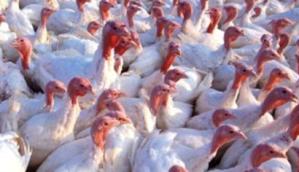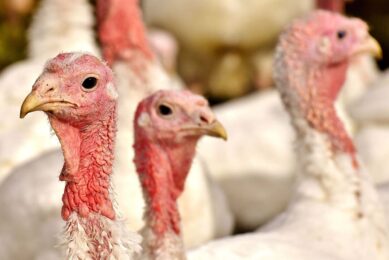A new turkey module for GLOBALGAP

GLOBALGAP announces the launch of the new module for the certification of commercial turkey production. The Turkey Module is part of the Integrated Farm Assurance Standard (IFA) of GLOBALGAP.
In 2008 the activities of the responsible standard managers and the sector committee for agricultural livestock at GLOBALGAP focused on the development of the turkey module. The experience and the commitment of turkey production specialists helped to define the control points and the compliance criteria.
Several free-range turkeys test audits with the new turkey module have been successfully carried out in Europe, as well as in Brazil at Perdigao.
Following completion of the public consultation by early January 2009, the turkey module was approved by the newly elected board of GLOBALGAP on 26 January.
Being a modular system, GLOBALGAP’s IFA requests that the audited and certified turkey producer has to comply with GLOBALGAP’s All Farm, Livestock Base and the new Turkey modules in order to achieve the certification. The turkey module follows the same structure as the other modules and contains 31 Major Musts, 62 Minor Musts and 10 Recommendations.
The headlines of the 13 sections that provide the control points and compliance criteria for commercial turkey producers are: provisions for poults, supply of feed and water, housed and free-range turkeys, shed facilities and their mechanical equipment, turkey health and veterinary care, hygiene and pest control, handling and residue monitoring, emergency procedures, workers knowledge and qualifications plus compliance with social standards, humane slaughter of casualty birds as well as dispatch and transportation of birds for slaughter.
The permanent recording of the health parameters by the producer in association with the VHP is a Major Must criterion. The permanent recording of the health parameters by the producer in association with the Veterinary Health Plan (VHP) is a Major Must criterion. Thus, a sophisticated VHP is one of the keystones for compliance with GLOBALGAP?s turkey module. Animal welfare issues are addressed in many control points, especially the separation of sick birds, the knowledge of workers on animal welfare and the implementation of their skills in daily work.
Source: Dr Roland Aumüller, Specialist Veterinary Surgeon for Animal Breeding and Biotechnology
Related link:













